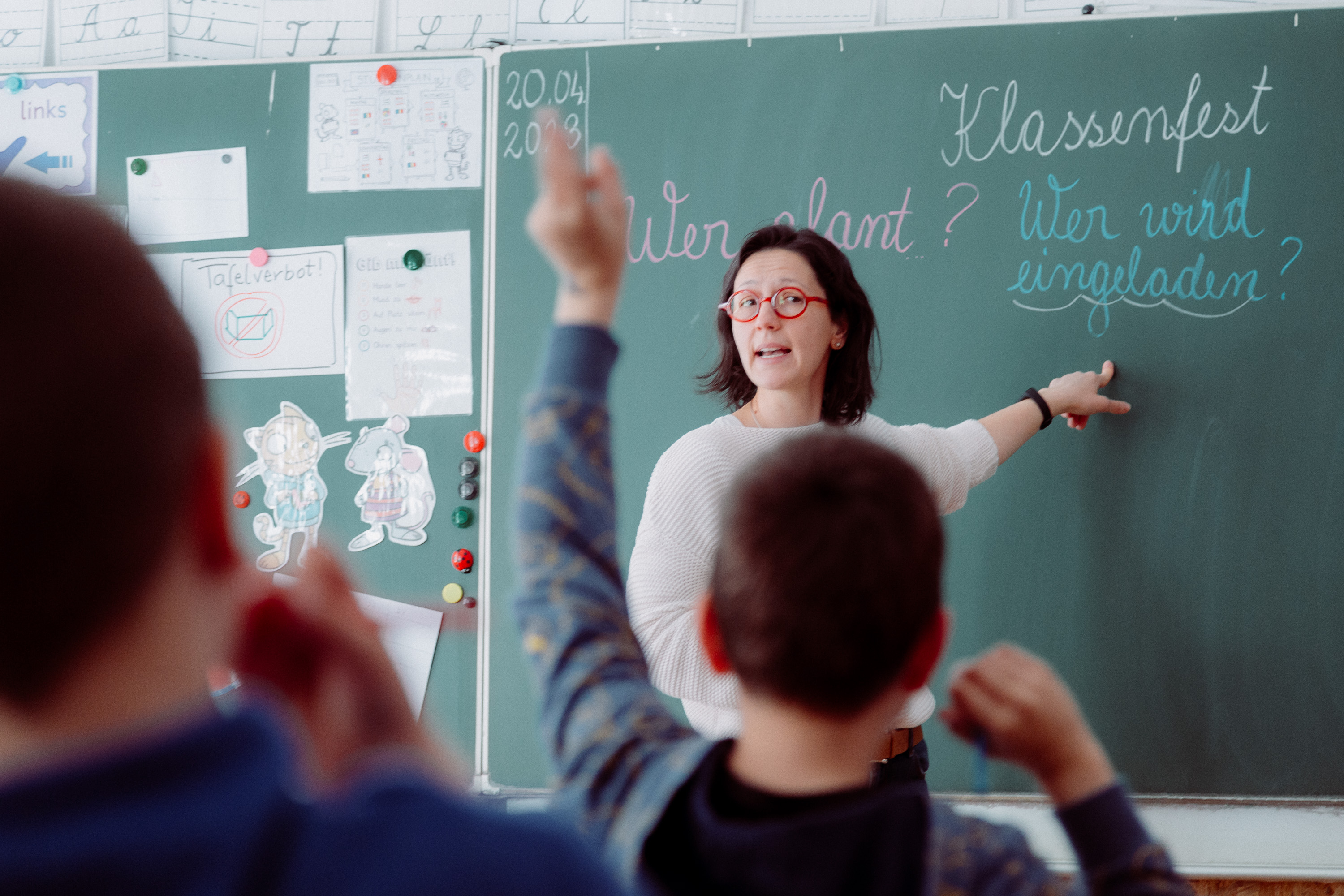
Insights, impulses and a suitcase full of ideas: the Education WG's annual conference in Romania a great success
25.04.2023There is a lot of excitement in the classroom of class 2a at General School No. 2 in Sibiu/Hermannstadt, Romania: visitors from all corners of Europe have come to visit the young pupils to watch their German lesson, of all things. They are the stars today, being watched as they write, read and speak, and they also have the opportunity to demonstrate their language skills in dialogue with the guests. It is these moments that always make the annual meetings of our FUEN Education Working Group particularly impressive and lasting - after all, the expert visits to educational institutions, which are always integrated, provide exciting practical insights that no lecture or video documentation can replace. The participants agreed that "it was worth coming just for that".
From 18 to 21 April, the fifth annual conference of the Education WG took place in Sibiu/Hermannstadt with 20 experts from the field of minority education from twelve European countries – from Alsatians from France to Turkmen from Russia to Montenegrins from Albania, a wide variety of nationalities were represented. It was hosted by our member organisation Democratic Forum of Germans in Romania. Due to its eventful history and the changing affiliation to Germany, Hungary, Austria and finally Romania, the city is called the "city of many national minorities" – and as such, it offers the best conditions for gaining insights into the education system.
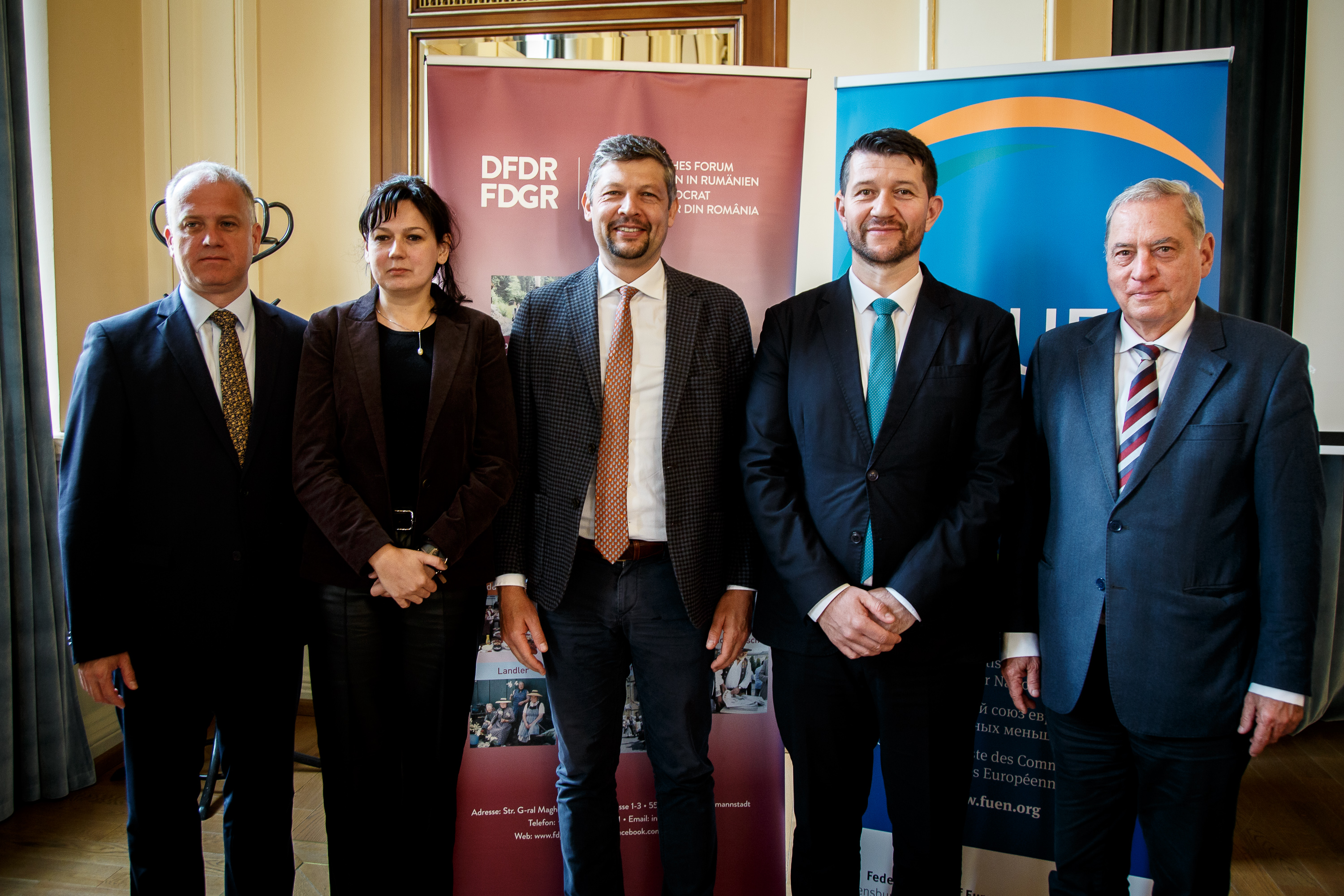 Welcoming the guests in Sibiu/Hermannstadt: Benjamin Józsa, (Managing Director of the Democratic Forum of Germans in Romania), Enikő Bíró Laczikó (State Secretary at the Department for Interethnic Relations), Daniel Alfreider (FUEN Vice President and Spokesperson of the Education WG), Zoltán Kallós (State Secretary at the Ministry of Education Romania) as well as Dr. Paul-Jürgen Porr (Chairman of the Democratic Forum of Germans in Romania).
Welcoming the guests in Sibiu/Hermannstadt: Benjamin Józsa, (Managing Director of the Democratic Forum of Germans in Romania), Enikő Bíró Laczikó (State Secretary at the Department for Interethnic Relations), Daniel Alfreider (FUEN Vice President and Spokesperson of the Education WG), Zoltán Kallós (State Secretary at the Ministry of Education Romania) as well as Dr. Paul-Jürgen Porr (Chairman of the Democratic Forum of Germans in Romania).
First, the theory was on the agenda: What is the situation of minorities in Romania? What framework conditions apply to the day-care centres and schools of the minorities? A topic that is also experiencing a certain topicality in the country itself, as a new education law is in the works. Enikő Biró Laczikó, Secretary of State at the Department of Interethnic Relations, and Zoltán Kallós, Secretary of State for Education, are involved in this. According to them, the new law should integrate early childhood education and thus guarantee pedagogy in the minority language from crèche to university.
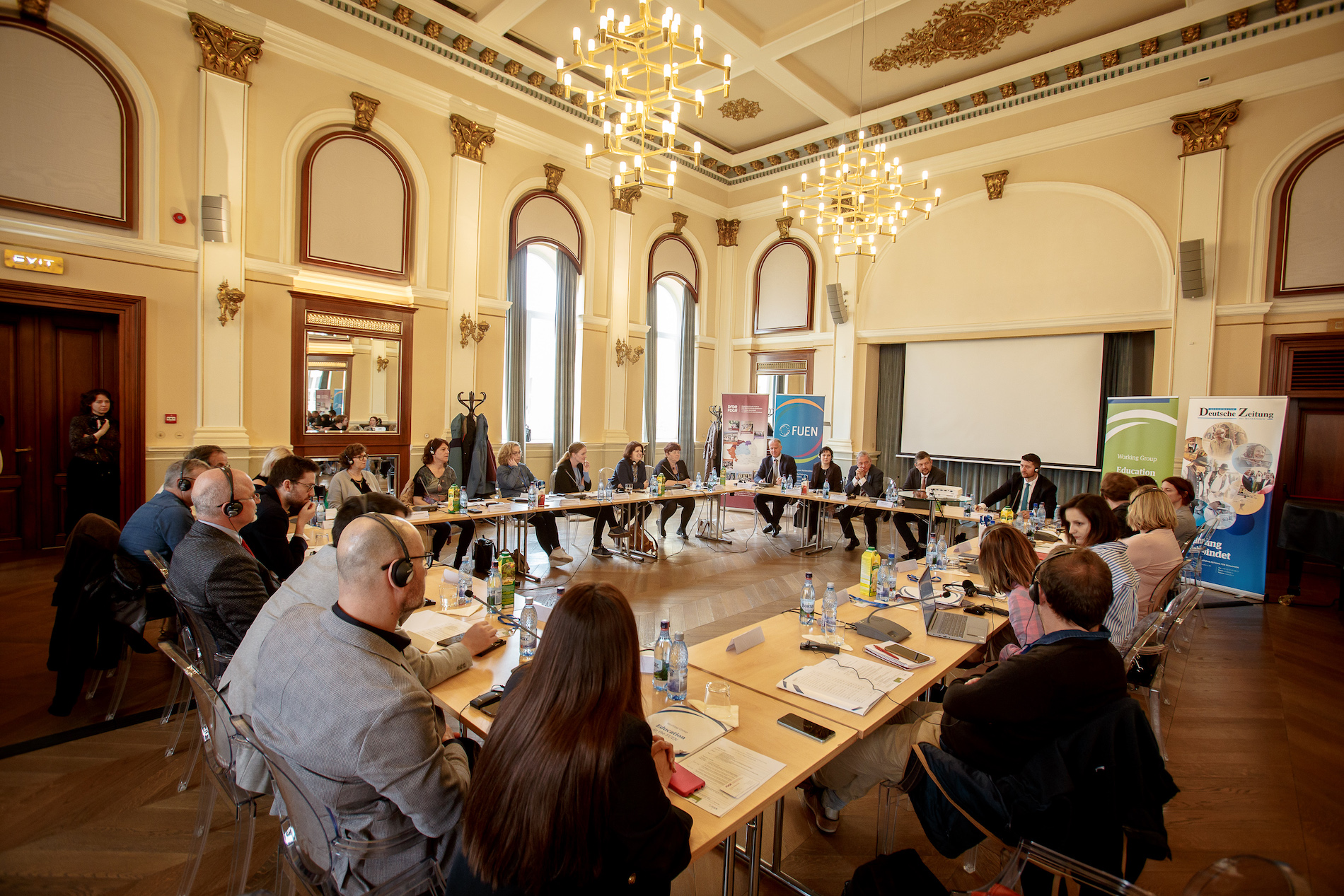
Monika Hay from the school commission of the German minority in Romania explained the framework conditions of the German educational institutions. "The German-language schools and departments enjoyed a very good reputation even before the fall of communism. They continue to be very sought-after educational institutions." A major problem, he said, is the shortage of teachers – an issue that most minority communities know well.
The special focus of this year's conference was on the transition from kindergarten to primary school, which is why an expert lecture from academia was not to be missed. Liana Regina Iunesch, who works at the local Lucian Blaga University in teacher training with German as the language of instruction, focused on the language test, which is used when enrolment numbers exceed the capacity of German schools. Since these schools are in high demand, this is often the case, he said. "Some find it useful, others not child-friendly and subjective," the researcher explained. "Many children experience a lot of pressure from parents to learn the language."
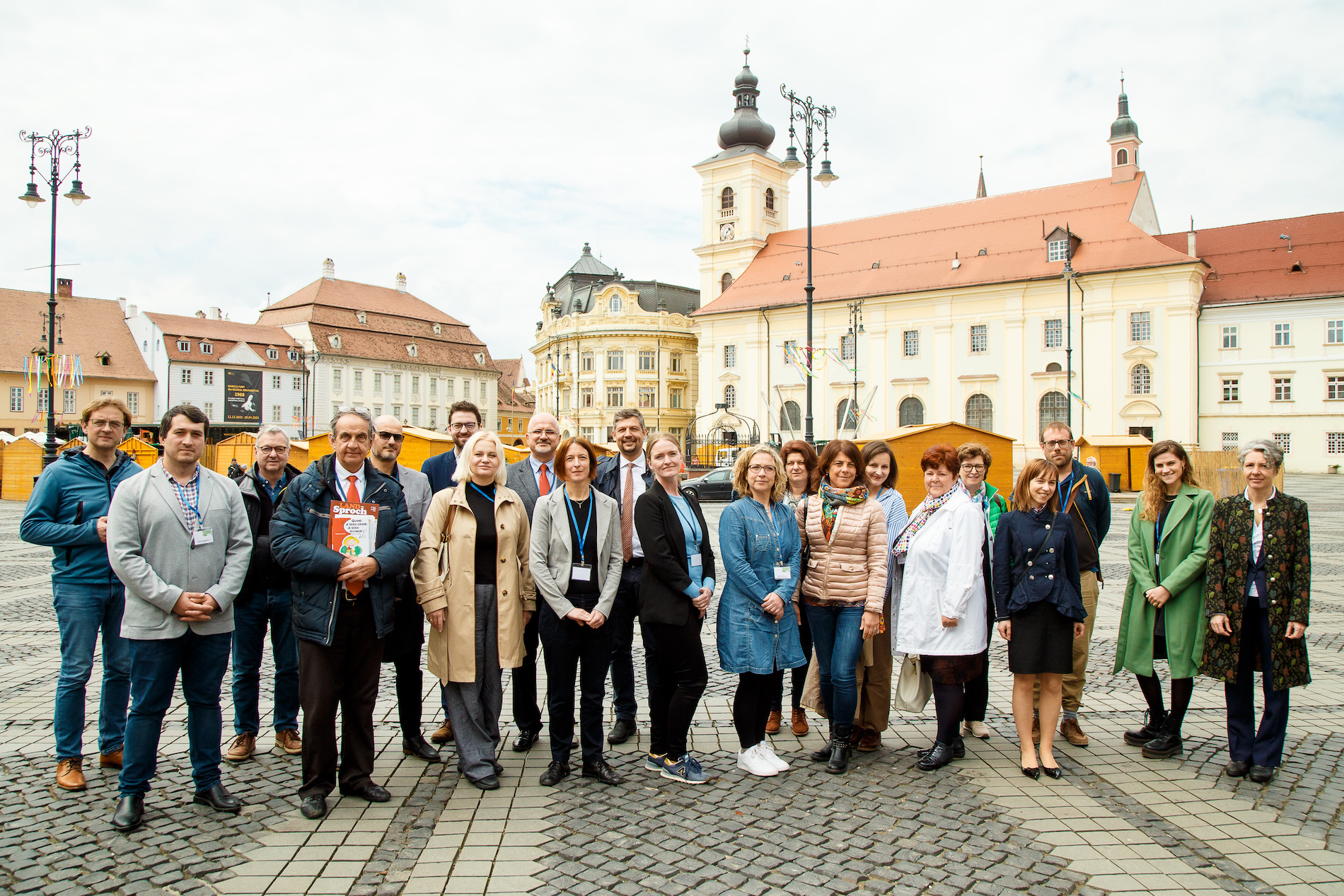
The subsequent discussion and the country reports of the participants showed that the transition from kindergarten to school is a field of work in many minorities. Building bridges and creating a better exchange is an important prerequisite to ensure continuity and quality. However, what also became clear: there are minorities that are not even recognised as a minority in their countries and have no educational offers at all, and there are also minorities like the Ladin minority that have literacy concepts in four languages.
On the second day, the practical side followed: During visits to a day-care centre and various primary schools, the participants were able to get an idea of everyday educational life in Sibiu/Hermannstadt – after several years of restrictions due to the pandemic, this was finally possible again to the full extent, much to the delight of the visiting teachers, but also of the teachers in the educational institutions and, last but not least, of the children themselves.
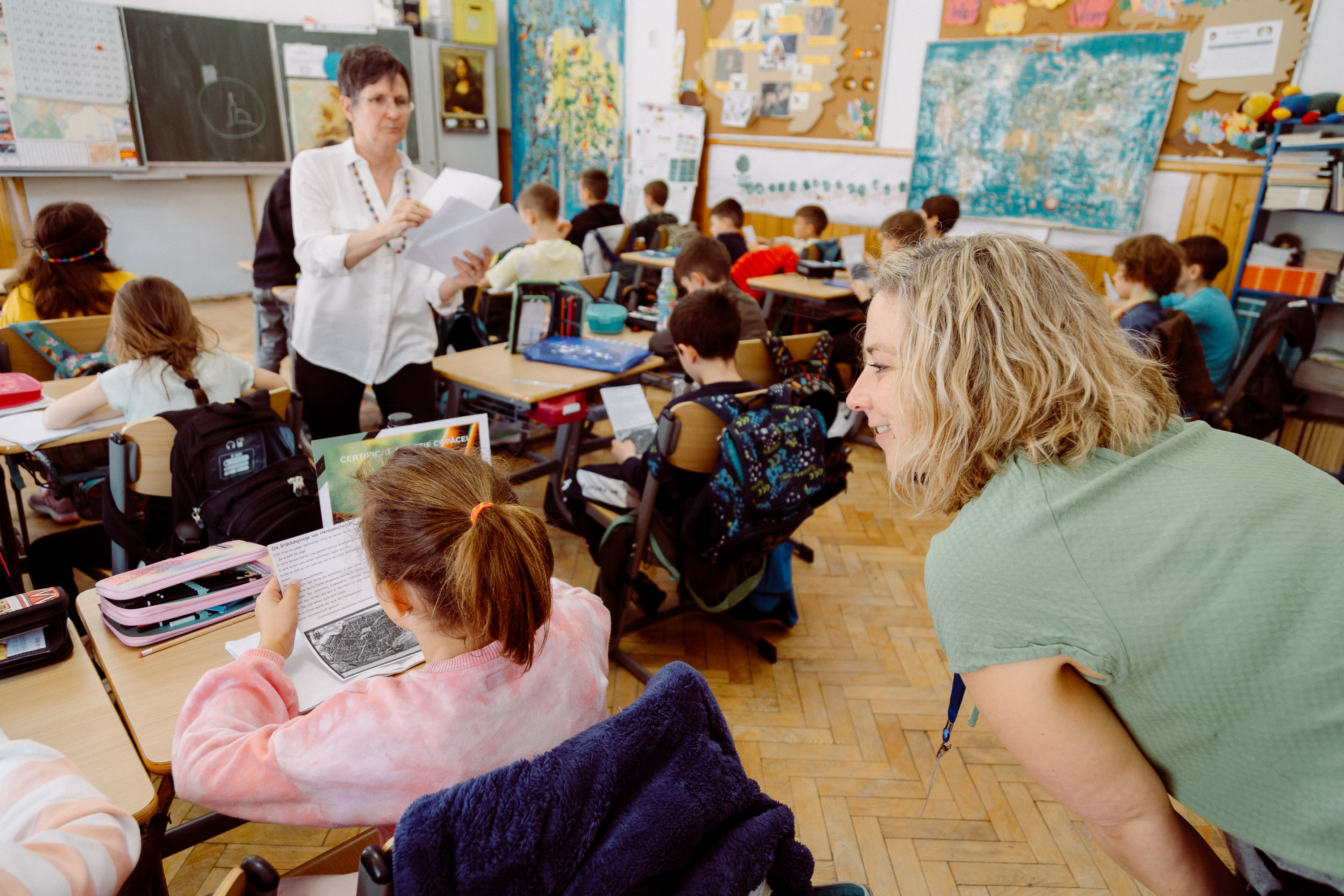
"I was pleased that we were guests in Eastern Europe this year, where minorities are often confronted with very different realities of life, especially in the field of education," was the summary of FUEN Vice-President Daniel Alfreider. "A good exchange especially in such an elementary education sector makes us stronger and is an important building block for language preservation."
For the future, the Education WG has no shortage of topics: Recruiting professionals, immersion concepts, implementing curricula in reality and children's perspectives on school and learning are possible approaches. Furthermore, the online platform for teaching materials and concepts is to be further filled and an exchange of educators is to be initiated.
Many thanks to the hosts from the Democratic Forum of Germans in Romania for the wonderful hospitality and professional cooperation in organising the annual conference – it was a great pleasure and enrichment for us. Our thanks also go to the Federal Ministry of the Interior of the Federal Republic of Germany for its financial support.
You can find more photos of the conference in our photo gallery.
Photo credit: László Mihály
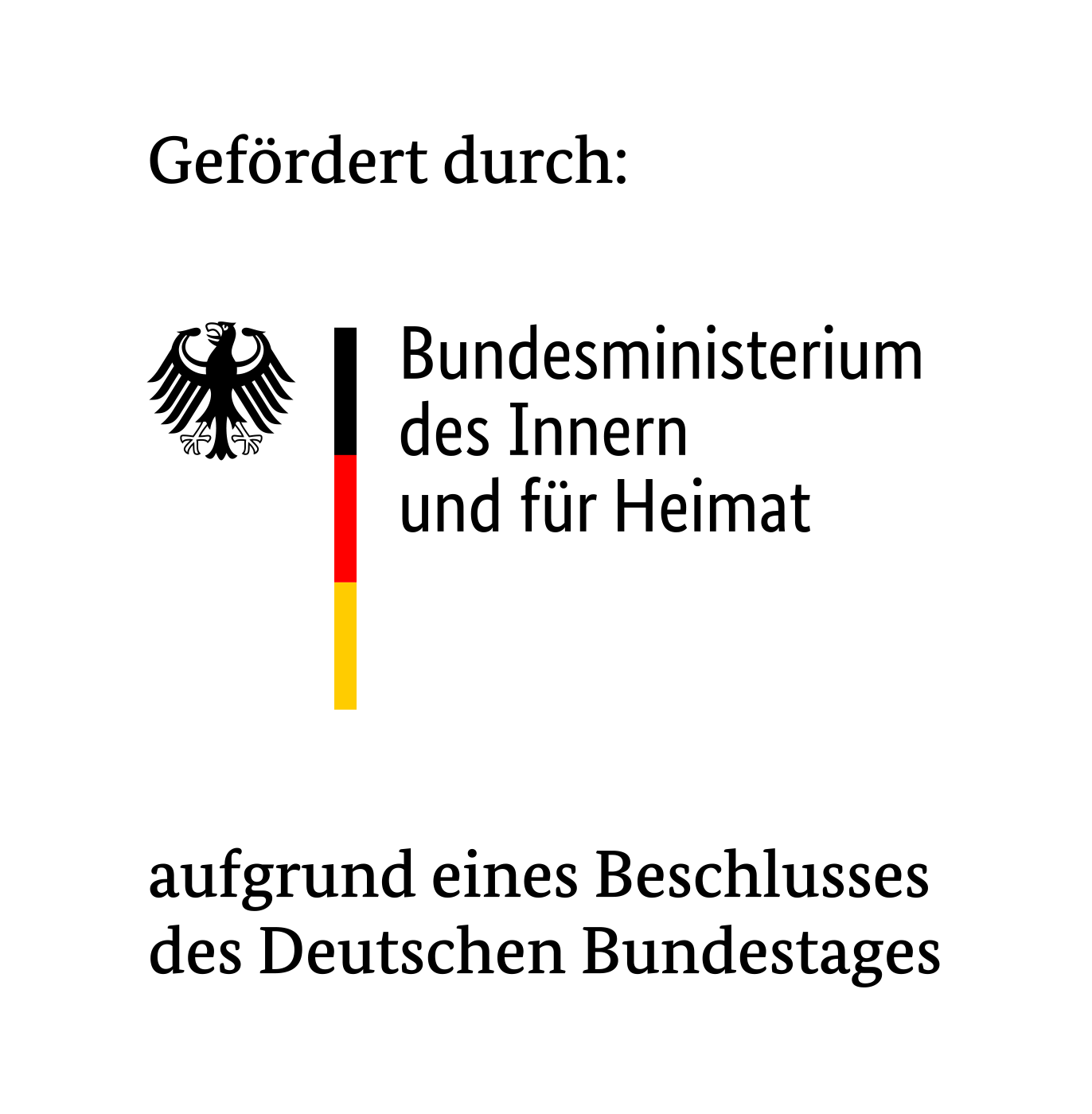
COMMUNIQUÉ DE PRESSE
- FUEN wishes you a peaceful Christmas season, restful days and a bright, hopeful start to the new year!
- FUEN calls on the EU to act over systematic ethnic-based land confiscations in Slovakia
- Women of Minorities conference in Budapest calls for structural change to ensure equal political participation of minority women
- FUEN President Olivia Schubert at UN Forum on Minority Issues in Geneva
- "Laboratory of Peace": 28th Seminar of Slavic Minorities held in European Capital of Culture Gorica/Gorizia
- Equality in Political Participation and Representation: Third “Women of Minorities” Conference to Be Held in Budapest
- FUEN Working Group on Education discusses challenges and future of minority schooling in Europe
- 28th Seminar of Slavic Minorities in Europe to take place in Gorica/Gorizia, Italy
- Olivia Schubert in her first interview as FUEN President
- FUEN Assembly of Delegates elects new leadership – Olivia Schubert becomes new President














